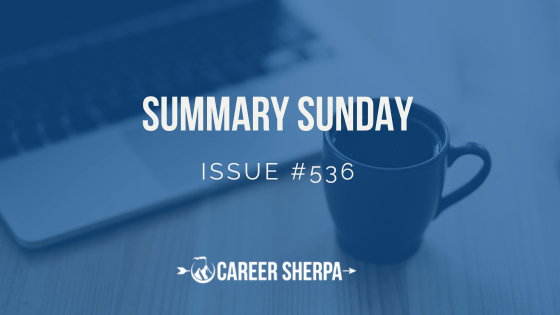
As someone with severe food allergies, I know how difficult it can be to address your food allergies with new co-workers and peers in an assertive yet informative wayâespecially when starting a new job in a completely unfamiliar environment. How can your place of work be inclusive of employees with severe food allergies?
What Is A “Severe” Food Allergy?
via GIPHY
Severe food allergies are called severe for a reason. They’re life-threatening and should be taken very seriously. When someone with food allergies ingests food that contains the triggering allergen, they can go into anaphylaxis. If not administered epinephrine (an EpiPen) in time to treat the anaphylactic reaction, the reaction can be fatal.
Work Spaces And Food Allergies Don’t Always Mix
via GIPHY
There are about 32 million Americans with food allergies. And with reports that food allergies in children increased by 50% between 1997 and 2011, they won’t be going away anytime soon. Two children in every classroom will soon mean two people in every office. So, what is it like to work in an office with food allergies?
To start, it may mean not having a piece of cake at that upcoming office birthday party. Lunchtime always keeps them on guard, and they usually opt to brown-bag-it, using caution in the cafeteria and shared office kitchens. Maybe they’re thinking about skipping the office outing to an unfamiliar restaurant on Friday, not sure if they’ll be comfortable eating there. Every day in an open office plan could bring anxiety, as they worry about airborne allergens and lack of safe, allergen-free spaces.
If you have food allergies, chances are you can relate to at least one of these things. But if you don’t have severe food allergies, you may be wondering: What does this really mean?
What The Law Says
via GIPHY
In the U.S., based on Section 504 of the Rehabilitation Act of 1973 and the ADA Amendments Act of 2008, the definition of “disability” has been modified to include those with severe allergies. This is due to the fact that severe allergies are “a physical or mental impairment that substantially limits one or more major life activities” (eating, breathing, and major bodily functions related to the immune, digestive, bowel, and respiratory system).
To sum it up:
“No individual shall be discriminated against on the basis of disability in the full and equal enjoyment of the goods, services, facilities, privileges, advantages, or accommodations of any place of public accommodation by any person who owns, leases (or leases to), or operates a place of public accommodation.” 42 U.S.C. § 12182.
Anyone with food allergies knows these laws are not widely enforced or known to apply to food allergies (think peanuts being served at baseball games or on airplanes). So, even though everyone in the U.S. with disabilities is entitled to the same rights as able-bodied people, people with severe food allergies often encounter their food allergies in these public spaces and at work and cannot fully partake in whatever activities are going on at these places. More importantly, their health and well-being could be at risk.
Most places of work are considered public placesâby legal definition meaning “any enclosed indoor area used by the general public or serving as a place of work containing two hundred fifty or more square feet of floor space.” Therefore, the two laws mentioned above apply, or should apply, to your place of work.
What Employers Should Know
via GIPHY
Good employers want to be as inclusive as possible. Yet it can be hard to be inclusive of those with food allergies if you’re unaware of who has food allergies in your office.
The best way to be inclusive and considerate about food allergies is to ask new and current employees if they have any severe food allergies. And if any do, ask them what you can do to make their work environment safe and comfortable. This shows employees you care, and by acknowledging food allergies as something serious and very, very real, it already establishes that foundation of trust that is so hard to gain in the first place.
Consider what it’s like trying to decide when to tell an employer about your food allergy. When asked if you have a disability on a job application, food allergies are not listed. If there’s a space to check “other” and write in a different answer, you may consider, for a split second, writing in your severe food allergy.
Does your disability require reasonable accommodation?
Yes and no. It’s not a physical disability, in the sense that you can’t visually tell who does or doesn’t have a food allergy. Yet your arrival at a new company could require them to change their policies and culture.
As you can see, it’s not easy explaining food allergies at work when there’s no system in place to deal with them. That’s why, as an employer, you should come up with a system that works for your company. After all, it’s your job to make sure all of your employees feel safe and included.
What YOU Can Do
via GIPHY
If you’re someone with a food allergy, you probably have lots of experience navigating the world with your condition. But the professional world can be a bit tricky.
When starting a new job, it’s best to tell your boss about your allergy as soon as you can, if they don’t bring up the topic first (you’re responsible for letting them know, and you’re entitled to reasonable accommodation!). Then, ask if you can call a meeting to explain your situation to your new co-workers. This will allow for an open dialogue about the subject, and those who have questions will be able to have them answered in a supportive and honest environment.
If you don’t have food allergies, but work with someone who does, please be respectful of their condition. If you’re unsure whether it’s okay to eat something around them, just ask. Communication is always the right choice.
Everyone deserves a safe and comfortable work environment. And it’s important to remember that no one chooses to have a food allergy.
If we all try to be more kind and considerate toward our peers, it will make work betterâfor everyone!
Need help with your career or job search?
Become a member to learn how to UNLEASH your true potential to get what you want from work!
This article was originally published at an earlier date.

























